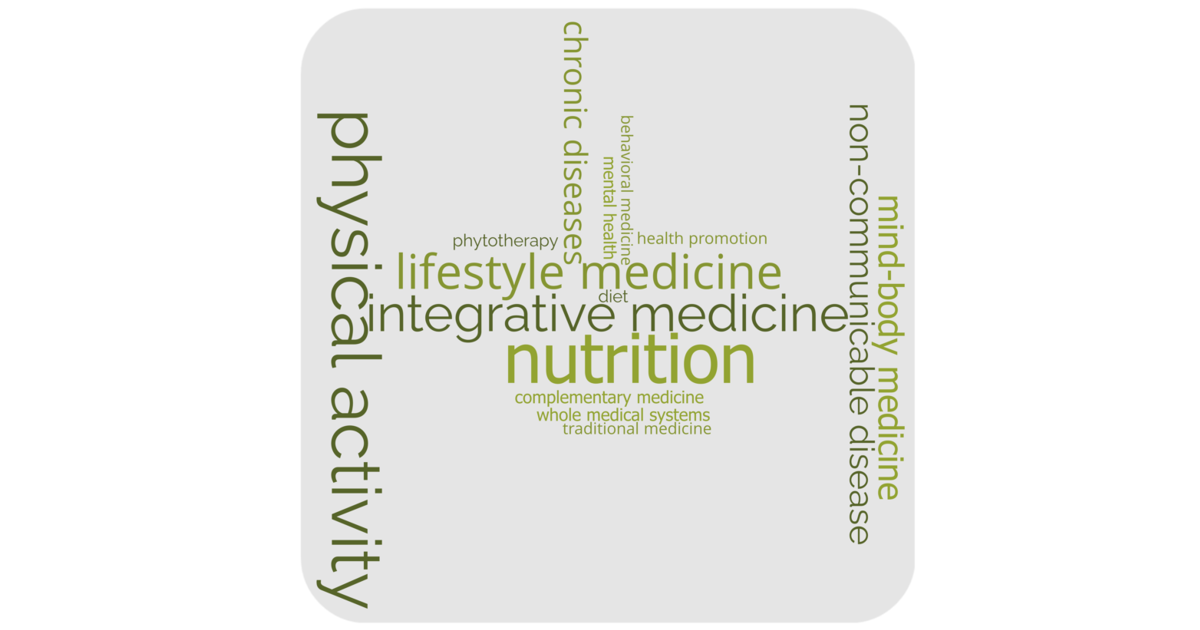Wise Choices: Nutrition, Physical Activity and Mental Health in Treatment and Prevention of Chronic Conditions
A special issue of Nutrients (ISSN 2072-6643). This special issue belongs to the section "Nutrition and Public Health".
Deadline for manuscript submissions: closed (5 February 2024) | Viewed by 19036

Special Issue Editors
Interests: integrative medicine; prevention; health promotion in chronic conditions; whole medical systems; traditional medicine
Special Issues, Collections and Topics in MDPI journals
Interests: integrative medicine; nutrition; traditional medicine; mind-body medicine
Interests: integrative medicine; nutrition; traditional medicine; mind-body medicin
Interests: integrative medicine; health system research; mental health; psycho-social aspects of diseases; health promotion and prevention
Special Issue Information
Dear Colleagues,
The long-term study ‘Global Burden of Disease’ has demonstrated that genes and medical care for health carry less importance and relevance than previously assumed (Afshin, 2019). On the other hand, individual nutritional and lifestyle factors are highly relevant for a great number of the most prevalent chronic diseases. Along with chronic stress and a lack of exercise, nutrition is one of the most important risk factors for the development of non-communicable diseases (NCDs). Lifestyle and nutritional and behavioral medicine are therefore becoming increasingly important in the prevention and treatment of NDCs and chronic conditions for physical and mental health.
This Special Issue will take this into account by addressing links between nutrition, lifestyle, and health in medical care, health promotion, and prevention. Alongside clinical studies, narrative/scoping/systematic reviews, meta-analyses, and selected case-report submissions are also welcome.
We look forward to your contributions!
Prof. Dr. Georg Seifert
Dr. Christian Kessler
Dr. Michael Jeitler
Dr. Wiebke Stritter
Guest Editors
Manuscript Submission Information
Manuscripts should be submitted online at www.mdpi.com by registering and logging in to this website. Once you are registered, click here to go to the submission form. Manuscripts can be submitted until the deadline. All submissions that pass pre-check are peer-reviewed. Accepted papers will be published continuously in the journal (as soon as accepted) and will be listed together on the special issue website. Research articles, review articles as well as short communications are invited. For planned papers, a title and short abstract (about 250 words) can be sent to the Editorial Office for assessment.
Submitted manuscripts should not have been published previously, nor be under consideration for publication elsewhere (except conference proceedings papers). All manuscripts are thoroughly refereed through a single-blind peer-review process. A guide for authors and other relevant information for submission of manuscripts is available on the Instructions for Authors page. Nutrients is an international peer-reviewed open access semimonthly journal published by MDPI.
Please visit the Instructions for Authors page before submitting a manuscript. The Article Processing Charge (APC) for publication in this open access journal is 2900 CHF (Swiss Francs). Submitted papers should be well formatted and use good English. Authors may use MDPI's English editing service prior to publication or during author revisions.
Keywords
- lifestyle medicine
- behavioral medicine
- non-communicable diseases
- chronic diseases
- diet
- nutrition
- mental health
- physical activity
- whole medical systems
- traditional medicine
- integrative medicine
- complementary medicine
- mind-body medicine
- phytotherapy
Benefits of Publishing in a Special Issue
- Ease of navigation: Grouping papers by topic helps scholars navigate broad scope journals more efficiently.
- Greater discoverability: Special Issues support the reach and impact of scientific research. Articles in Special Issues are more discoverable and cited more frequently.
- Expansion of research network: Special Issues facilitate connections among authors, fostering scientific collaborations.
- External promotion: Articles in Special Issues are often promoted through the journal's social media, increasing their visibility.
- Reprint: MDPI Books provides the opportunity to republish successful Special Issues in book format, both online and in print.
Further information on MDPI's Special Issue policies can be found here.







